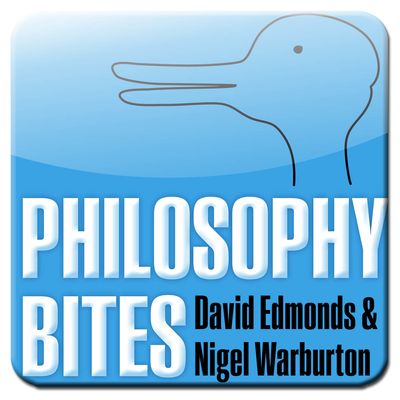David Edmonds (Uehiro Centre, Oxford University) and Nigel Warburton (freelance philosopher/writer) interview top philosophers on a wide range of topics. Two books based on the series have been published by Oxford University Press. We are currently self-funding - donations very welcome via our website http://www.philosophybites.com
http://www.philosophybites.com
Gesamtlänge aller Episoden: 5 days 15 hours 30 minutes
recommended podcasts
Derek Matravers on the Definition of Art
What is art? Can anything be a work of art? Derek Matravers, author of Art and Emotion, explores these questions in conversation with Nigel Warburton in this episode of Philosophy Bites ().
Melissa Lane on Plato and Totalitarianism
Was Plato's ideal state a totalitarian one? Karl Popper, thought so, and made his case in The Open Society and Its Enemies. Melissa Lane, author of Plato's Progeny, reassesses Popper's critique of Plato in this episode of Philosophy Bites.
Thomas Pink on Free Will
We often blame people for what they do or fail to do. But that implies that they were free to choose whether or not to act in the way they did. At the same time science seems to reveal prior causes of all our actions. There seems little or no room for...
Thomas Pink on Free Will
We often blame people for what they do or fail to do. But that implies that they were free to choose whether or not to act in the way they did. At the same time science seems to reveal prior causes of all our actions. There seems little or no room for...
Anthony Appiah on Cosmopolitanism
Is it possible to be a citizen of the world while maintaining your own distinctive identity? Anthony Appiah defends the ethical position he dubs cosmopolitanism (which for him is universalism combined with a recognition and celebration of diversity)...
A.C. Grayling on Descartes' Cogito
A.C. Grayling, author of a recent biography of René Descartes, explores Descartes' Cogito argument, the pivotal argument of the Meditations, in conversation with Nigel Warburton in this episode of Philosophy Bites.
A.C. Grayling on Descartes' Cogito
A.C. Grayling, author of a recent biography of René Descartes, explores Descartes' Cogito argument, the pivotal argument of the Meditations, in conversation with Nigel Warburton in this episode of Philosophy Bites.
A.C. Grayling on Descartes' Cogito
A.C. Grayling, author of a recent biography of René Descartes, explores Descartes' Cogito argument, the pivotal argument of the Meditations, in conversation with Nigel Warburton in this episode of Philosophy Bites.
Hugh Mellor on Time
Events happen in time. And time is essentially tensed: there is past, present, future. D.H. Mellor, author of Real Time (and Real Time 2) suggests otherwise. In this podcast for Philosophy Bites he explains why time isn't tensed.
Richard Tuck on Free Riding
If what I do has only a negligible impact on events, why should I bother doing it at all? Why not 'free ride' on other people's contributions? Richard Tuck explores these questions in this episode of Philosophy Bites.

